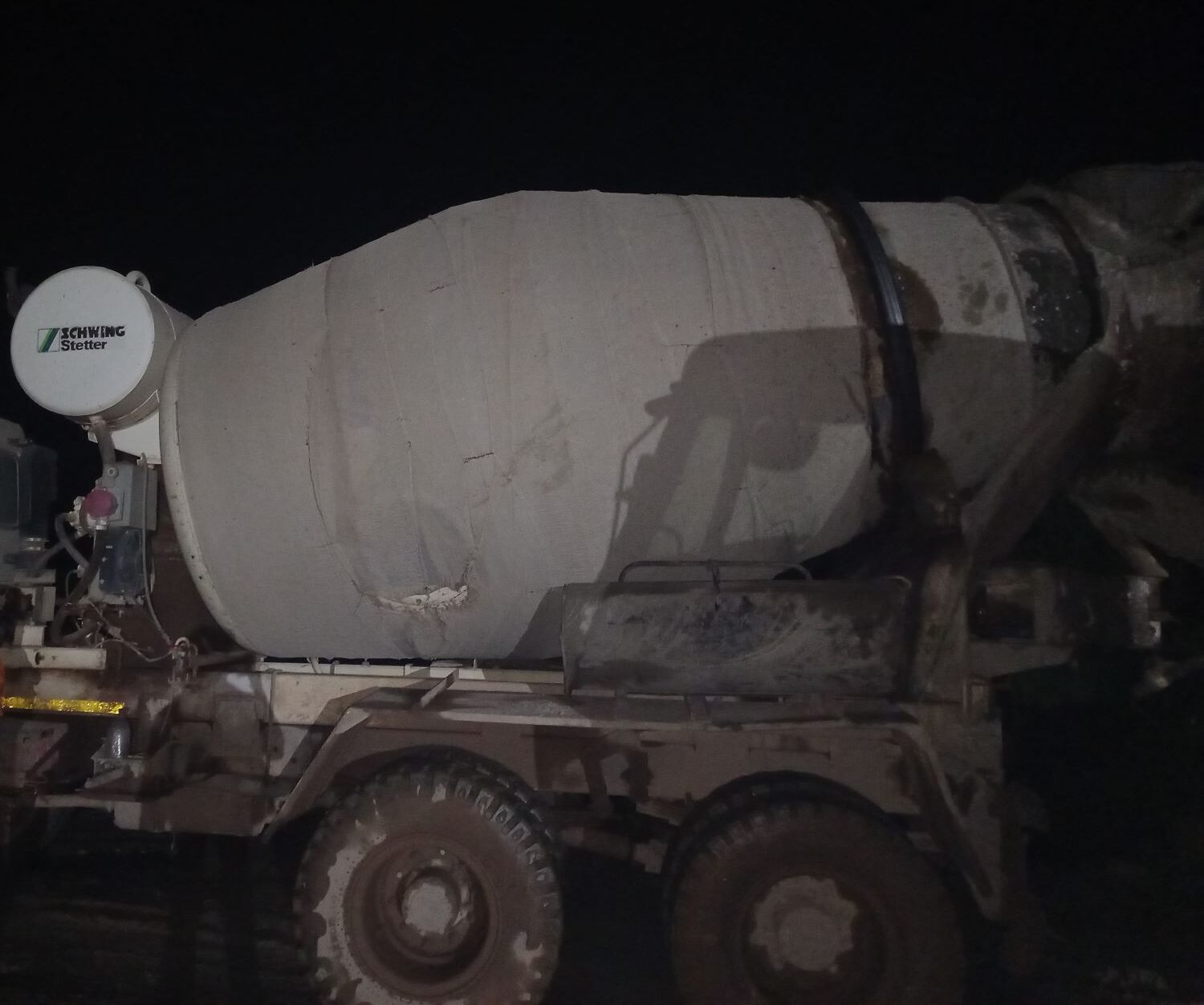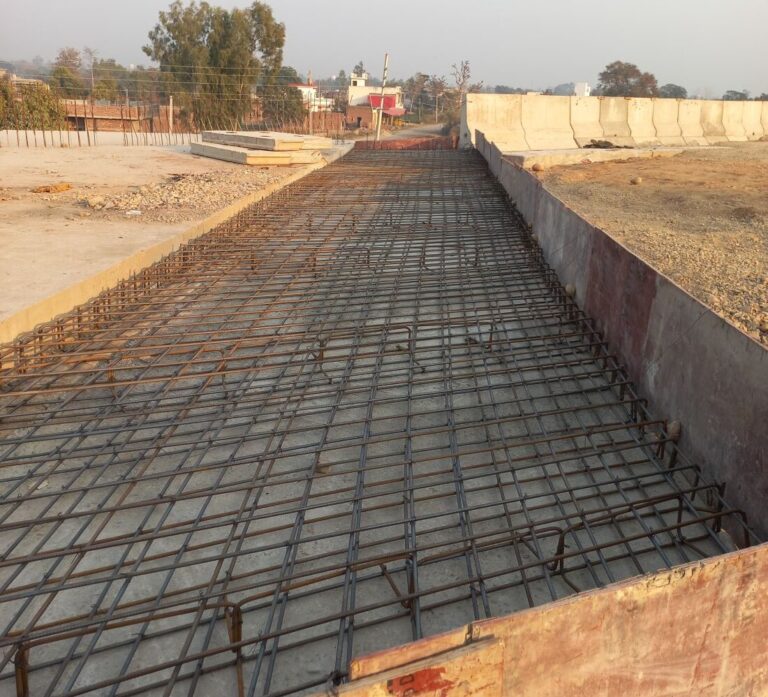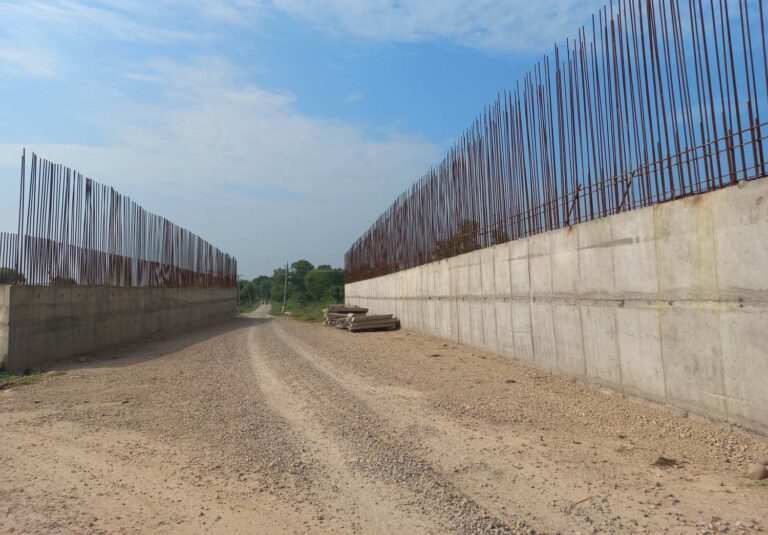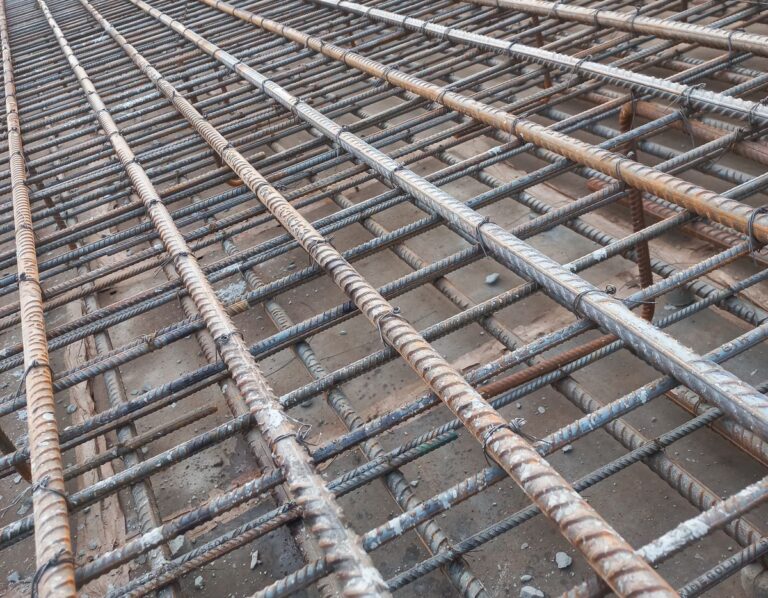before understanding ready mix concrete, we need to know about what is concrete firstly. concrete is a mixture of cement, sand, water and aggregates.
usually, we have seen that we prepare concrete mixture with mixing aggregates with cement and sand on construction side, but in modern time we prepare concrete mixture in batching plant. It is prepared in batching plant under experts civil engineers and their team.
construction team using a vehicle which name is transite mixture, to transport green concrete from batching plant to construction side.
BENEFITS OF RMC
Ready Mix Concrete (RMC) offers numerous benefits that make it a popular choice in the construction industry.
Consistent Quality: RMC is manufactured in controlled conditions, ensuring uniformity and consistency in the concrete mixture.
Reduced Variability: The automated batching process minimizes the variability in the concrete mixture, leading to predictable and reliable performance.
Speed of Construction: RMC can be delivered directly to the site, reducing the time needed for on-site mixing.
Quick Setting: With additives and controlled concrete mixture designs, RMC can be customized to set and cure faster.
Reduced Labor Requirements: On-site labor needed for mixing and handling concrete is significantly reduced.
Waste Reduction: RMC production reduces material wastage compared to on-site mixing.
Cost-Effective: Although RMC might have a higher upfront cost compared to site-mixed concrete, the overall savings in terms of labor, time, and waste management make it cost-effective.
These benefits collectively contribute to the widespread adoption of Ready mix concrete in the construction industry, enhancing both the quality and efficiency of construction projects.
READY-MIX Concrete
A concrete mixture, commonly referred to as Ready-Mix Concrete (RMC), is a blend of cement, water, aggregates, and sometimes admixtures, mixed in specific proportions to achieve desired properties. RMC is produced in a batching plant under controlled conditions and then delivered to the construction site in a ready-to-use state. The consistency and quality of RMC make it a preferred choice in modern construction, ensuring uniformity, strength, and durability. There are three main types of ready-mix concrete: normal, standard, and premium, each designed for specific applications and performance requirements.
Types of READY-MIX CONCRETE
1. Normal Concrete Mixture
Normal concrete mixture contains Plain Cement Concrete (PCC) and is typically used for non-reinforced construction projects. This type of concrete includes grades ranging from M5 to M15. The low-grade mixtures (M5-M15) are suitable for simple construction tasks such as pathways, pavements, and non-structural works where high strength is not a critical requirement. These mixtures are easy to work with, cost-effective, and provide adequate durability for light-load-bearing applications.
2. Standard Concrete Mixture
Standard concrete mixture is designed for structural applications that require reinforcement with steel due to heavy load-bearing demands. The grades for this mixture range from M20 to M40. These concrete grades are commonly used in the construction of buildings, bridges, and other infrastructure where strength and stability are crucial. The inclusion of reinforcement steel in the concrete enhances its tensile strength, making it capable of supporting significant loads and providing long-term durability and resistance to environmental factors.
3. Premium Concrete Mixture
Premium concrete mixture, known for its superior quality, includes high-grade Reinforced Cement Concrete (RCC) typically starting from grade M60 and above. This type of concrete is used in critical structural applications such as pier caps, dams, and high-rise buildings. The high-grade mixture ensures exceptional strength, durability, and resistance to harsh environmental conditions. Premium concrete mixtures are often tailored with advanced admixtures and special ingredients to achieve specific performance characteristics, making them suitable for projects requiring the highest standards of structural integrity and longevity.
Things to Know Before Ordering RMC
When ordering Ready-Mix Concrete (RMC), it’s crucial to consider several factors to ensure efficient delivery and usage. Firstly, broad roads are necessary for the transite mixtures, and the concrete must be consumed within 210 minutes (3 hours and 30 minutes) to maintain its quality. Due to this time constraint, it’s best to purchase RMC from nearby suppliers. Manufacturers often prefer night time deliveries to avoid traffic, so builders must have labor ready accordingly. Before placing an order, clearly understand the purpose, structural needs, and volume of the concrete required to minimize wastage. RMC is prepared in batches at factories, making precise planning essential to avoid over-ordering or under-utilization.
Conclusion
Ready-Mix Concrete (RMC) revolutionizes the construction industry by providing consistent quality, reducing labor costs, and accelerating project timelines. Its controlled production process ensures uniformity and performance tailored to specific needs. As construction continues to evolve, RMC remains a vital resource, enhancing efficiency and durability in various applications.
What is meant by ready mix concrete?
Ready-Mix Concrete (RMC) is a pre-mixed blend of cement, water, aggregates, and sometimes admixtures, produced in a batching plant and delivered in a ready-to-use state to construction sites.
How many types of RMC are there?
There are three main types of Ready-Mix Concrete: Normal Concrete, Standard Concrete, and Premium Concrete, each designed for specific applications and performance requirements.
What is the mixture of ready mix concrete?
Ready-Mix Concrete consists of a mixture of cement, water, aggregates, and optional admixtures, combined in precise proportions to achieve desired properties like strength and durability.
Which cement is used for RMC?
Ordinary Portland Cement (OPC) is typically used for Ready-Mix Concrete, although other types like Portland Pozzolana Cement (PPC) may also be utilized depending on specific project requirements.









Your writing has a way of resonating with me on a deep level. I appreciate the honesty and authenticity you bring to every post. Thank you for sharing your journey with us.